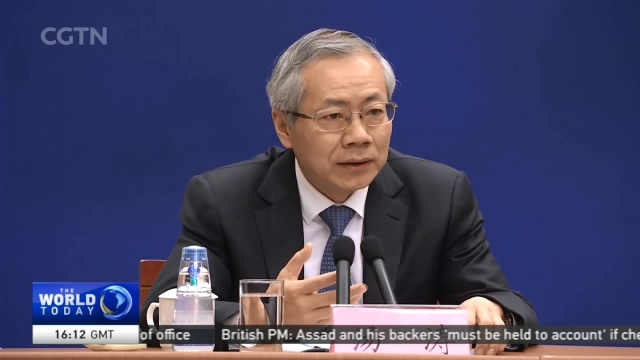
08:20, 10-Apr-2018
Talent & Innovation: Government intensifies efforts to attract overseas Chinese talent

40 years after initiating its reform and opening up, China is now looking to overseas Chinese for talent to help sustain the country's unprecedented growth. As Premier Li Keqiang mentioned in the recent government work report, China will adopt more effective policies for bringing back talent from overseas. These policies would make sure overseas professionals are able to use their strengths to the fullest. This morning, the State Council's Information Office unveiled detailed plans. CGTN's Gary Anglebrandt has more.
In the past 5 years, over 2.3 million Chinese students have gone to study abroad. A considerable number now are choosing to come back after completing their studies. China continues to roll out incentives for overseas talents to return and work in entrepreneurship and innovation.
Tang Tao, a human resources vice minister, says the ministry will work with 25 government bodies to lure back overseas professionals.
TANG TAO, VICE MINISTER MINISTRY OF HUMAN RESOURCES AND SOCIAL SECURITY "At the top level, we have introduced more than 30 documents to improve our policy system, regarding exit-entry administration, social insurance, taxation, intellectual property protection and many more areas. We've also organized an expert committee to give overseas Chinese students all-around guidance for starting businesses in China."
China also has launched projects to give returnees a better understanding of market conditions. This includes the "Thousand Talents" entrepreneurial platform and events for sharing innovative ideas. And the government will provide services to make it easier for overseas Chinese students to settle down and start their own businesses. Outreach efforts are underway to make sure the word gets out about these programs.
TANG TAO, VICE MINISTER MINISTRY OF HUMAN RESOURCES AND SOCIAL SECURITY "For instance, the People's Bank of China, and the Ministries of Finance and Human Resources, promote guaranteed loans for start-ups. Others, such as the intellectual property office, are lowering the threshold for intellectual property financing, raising the amount of financing, and extending the deadline of financing. Taking the household registration for urban residency as another example, the government will simplify the certification requirements and procedures for overseas Chinese students to obtain residency.”
Given the changing international environment and tightening visa rules in countries like the USA, how China accommodates outside talent could make a big difference, providing intellectual support for the country's development.

SITEMAP
Copyright © 2018 CGTN. Beijing ICP prepared NO.16065310-3
Copyright © 2018 CGTN. Beijing ICP prepared NO.16065310-3